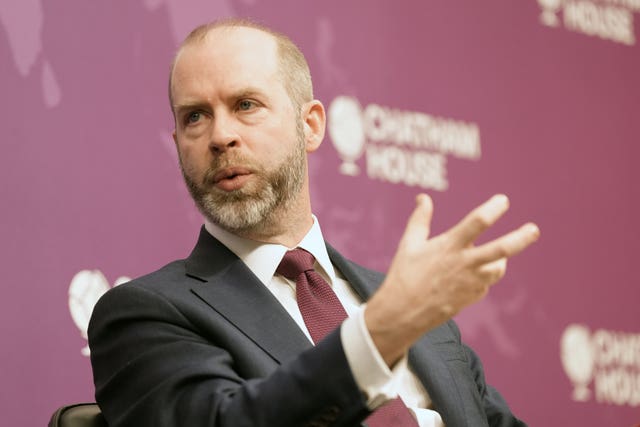Starmer: Trump tariffs likely to hit UK and all options on table in response
The Prime Minister suggested that retaliatory tariffs were possible but stressed that he does not want to see a trade war.

Sir Keir Starmer said it was likely that Donald Trump’s tariffs would hit the UK and promised to act in the national interest in response.
The Prime Minister suggested that retaliatory tariffs were possible but stressed that he does not want to see a trade war.
The UK will seek to carve out an exemption, Business Secretary Jonathan Reynolds said, but could not give a timescale for when he expects to get the taxes on UK imports reversed.
Donald Trump is set to unveil sweeping tariffs on goods from around the world on Wednesday, an event the US president has dubbed “liberation day”.
Sir Keir’s Government has been trying to negotiate an economic deal with the US, which it is hoped could protect UK businesses from the worst impacts of Mr Trump’s plans.
The Prime Minister told Sky News: “The likelihood is there will be tariffs. Nobody welcomes that.
“We are obviously working with the sectors most impacted at pace on that. Nobody wants to see a trade war but I have to act in the national interests.”
That means that “all options remain on the table” in response, he added.
Businesses want a “calm and collected response to this, not a knee-jerk”, Sir Keir said.
He said he hoped the deal being negotiated with the US would mitigate the tariffs.
Asked if he had been “played” by Mr Trump amid efforts by Sir Keir to build a good relationship, the Prime Minister said: “The US is our closest ally.
“Our defence, our security, our intelligence are bound up in a way that no two other countries are.
“So it’s obviously in our national interest to have a close working relationship with the US, which we’ve had for decades, and I want to ensure we have for decades to come.”
He said talks on an economic deal would normally take “months or years” but “in a matter of weeks we have got well advanced in those discussions”.
Mr Trump has already announced a 25% import tax will be introduced on all cars imported to the US, a measure which will be a blow to the UK’s automotive industry.
Some 16.9% of UK car exports were to the US last year, representing a total of more than 101,000 units worth £7.6 billion.

The levy is on top of a series of tariffs set to come into effect on April 2, which could include a general 20% tax on UK products in response to the rate of VAT, which Mr Trump deems to be discriminatory against the US.
The new tariffs could derail the Government’s plans to grow the economy, and they come into force just after Chancellor Rachel Reeves made a series of cuts at the spring statement in order to restore a narrow buffer in the public spending headroom.
The Business Secretary told Sky News it was his “objective” to have the tariffs reversed.
“I can’t give a timescale on that but, of course, the longer we don’t have a potential resolution to that, the more we will have to consider our own position in relation to that,” Mr Reynolds said in a reference to potential retaliatory tariffs.
He said he believed a “framework of an agreement” is in place.
“We could sign heads of terms on that and then talk about the detail over a specific time scale that would be to the US’s satisfaction going forward.
“But look, whether the US is willing to come to agreement with countries is a decision for the US,” he told BBC Breakfast.
He did not rule out dropping or reducing the digital services tax for US businesses but said food standards were a “red line” in trade talks, when asked by Times Radio.
Free speech has not been part of tariff negotiations with the US, he said, after the US state department expressed concern over the case of a woman being prosecuted for the alleged breach of a “buffer zone” outside a Bournemouth abortion clinic.
“Obviously, there are things from different people in the administration that they’ve said in the past about this, but it’s not been part of the trade negotiations that I’ve been part of,” Mr Reynolds said.
Kemi Badenoch has said a trade deal is the “best way” to avoid tariffs and that retaliation will “make everyone poorer”.
The Conservative leader told LBC: “A trade deal is the best way but it has to be something significant and comprehensive, not just a deal that tinkers at the margins in easy areas.
“Some people will want us to have trade retaliation – that just makes everyone poorer.
“This is a time for significant diplomacy and showing that actually, if you put tariffs on, the people who will suffer aren’t just our exporters but also the American consumer who will have to pay more.”





